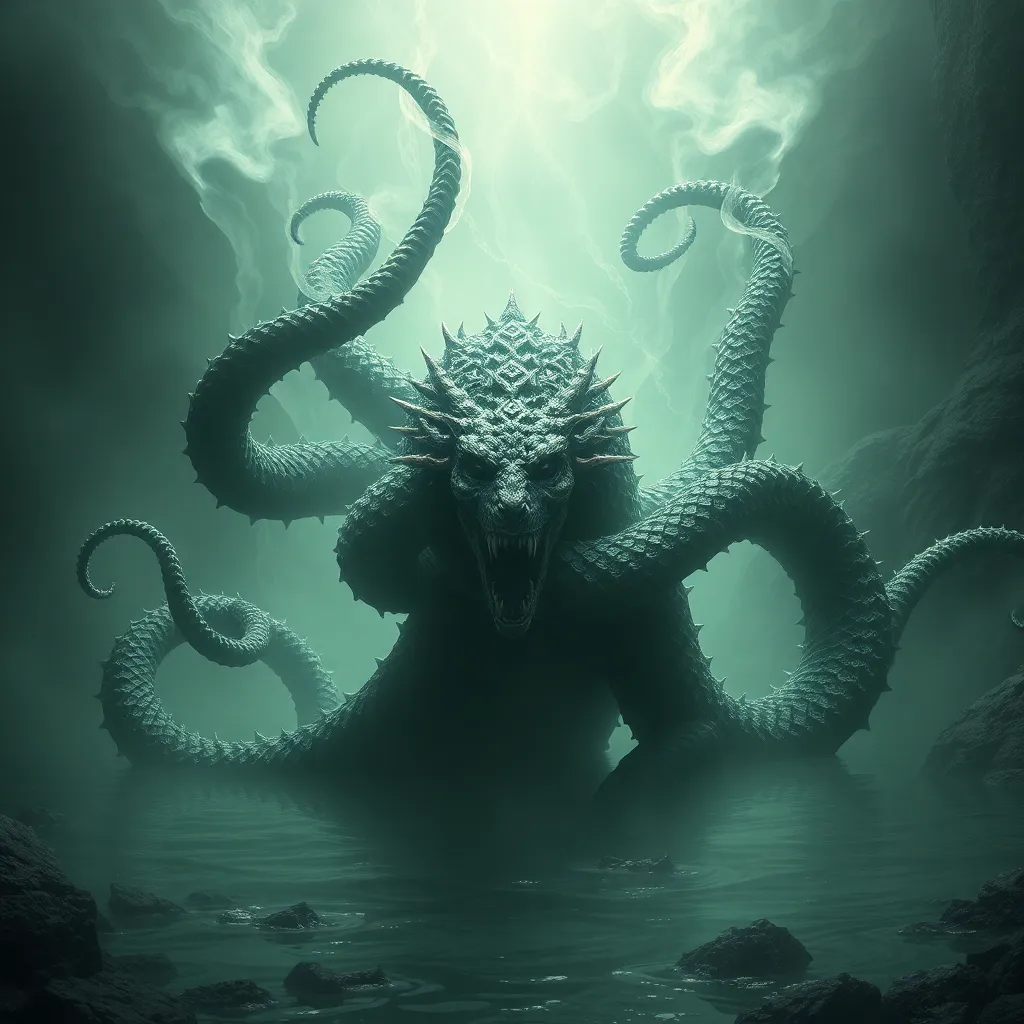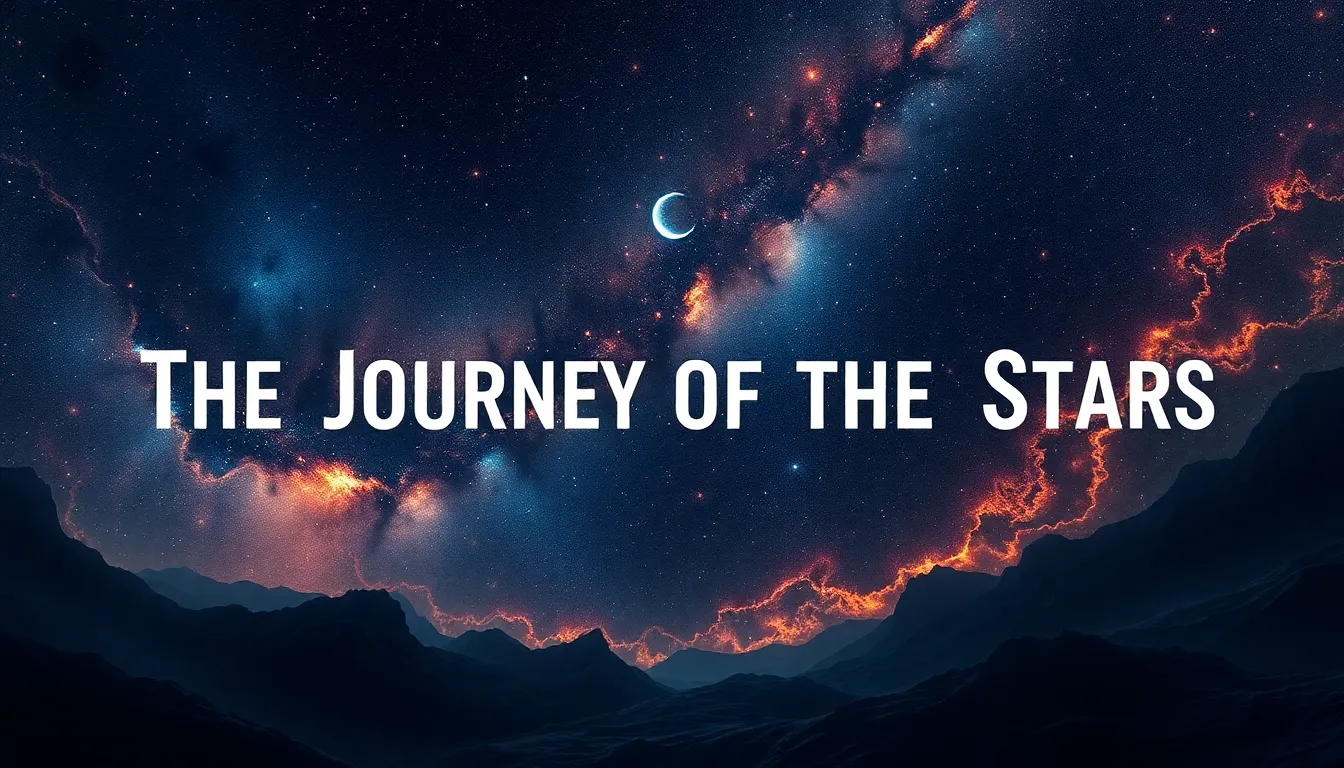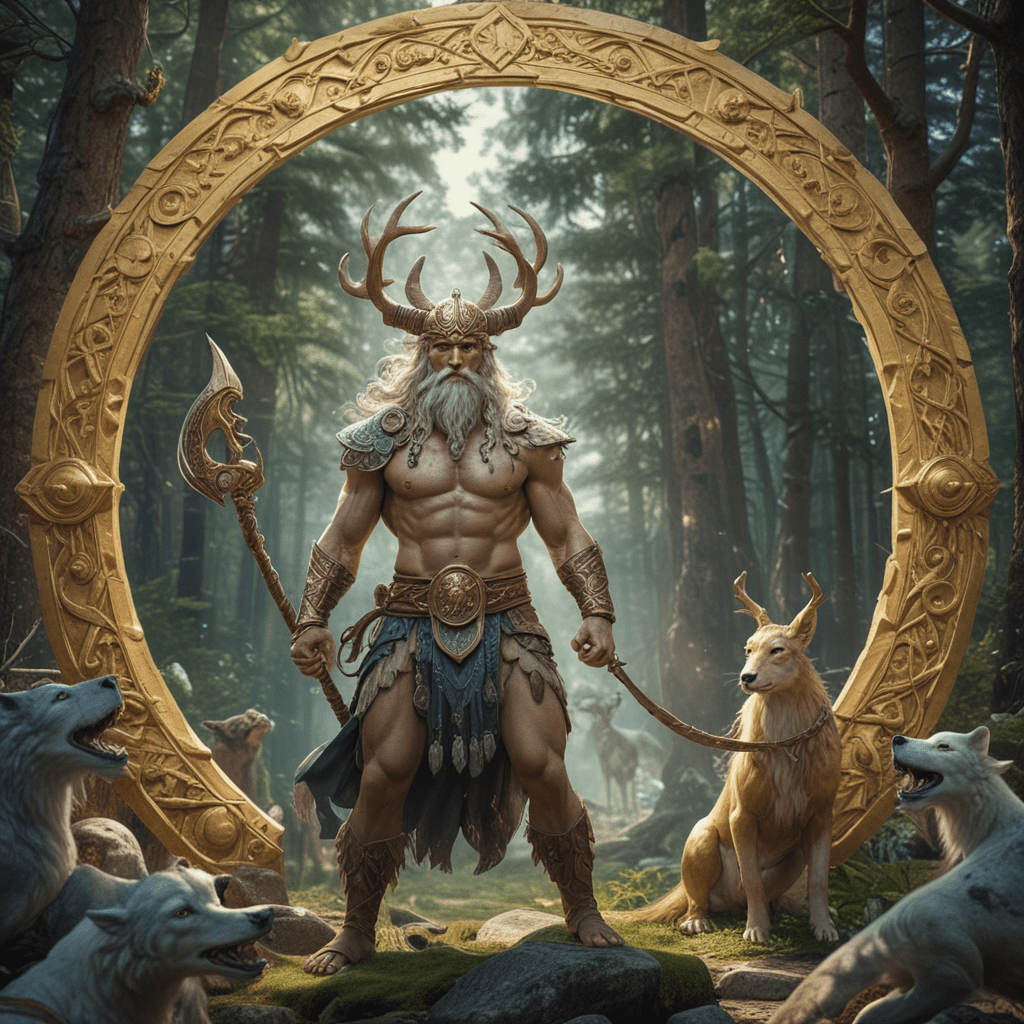The Hydra’s Embrace: Exploring the Monster’s Connection to the Underworld and Death
I. Introduction
The Hydra, a formidable creature from Greek mythology, has captivated the imagination of many throughout the ages. Known for its multiple heads and regenerative abilities, it embodies not only physical strength but also deeper themes of death, immortality, and chaos. The significance of the Hydra transcends its role as a mere monster; it serves as a symbol of the fears surrounding death and the complexities of the human experience in relation to the afterlife. This article seeks to explore the Hydra’s connections to death and the underworld, examining its origins, symbolism, and lasting impact on culture and thought.
II. The Mythological Origins of the Hydra
The Hydra is most famously described in Greek mythology as a serpent-like creature with numerous heads, with some accounts suggesting it had as many as nine. Each time one head was severed, two more would grow back in its place, making it a nearly invincible foe. The Hydra’s lair was located in the swamps of Lerna, and it was said to be the offspring of Typhon and Echidna, two of the most terrifying monsters in Greek lore.
The Hydra played a pivotal role in the Twelve Labors of Heracles, where it was tasked as one of the hero’s most daunting challenges. As Heracles approached the monster, he quickly realized that brute strength alone would not suffice; he had to devise a strategy to defeat it. With the assistance of his nephew Iolaus, who helped him cauterize the necks after decapitation, Heracles was ultimately able to overcome the Hydra, albeit through cleverness as much as strength.
The symbolism of the multi-headed serpent extends beyond its physical appearance. It represents the complexity of challenges and the multifaceted nature of death, suggesting that confronting one fear can lead to the emergence of others, much like the Hydra’s regenerating heads.
III. The Hydra and the Concept of Immortality
The regenerative ability of the Hydra’s heads introduces a compelling connection to concepts of immortality and eternal life. This trait not only makes the creature a formidable adversary but also serves as a metaphor for the cycle of life and death. In ancient cultures, the idea of resurrection and rebirth was prevalent, reflecting a belief in the continuity of existence beyond physical demise.
In many ways, the Hydra embodies the duality of life and death, suggesting that while death is inevitable, the essence of life can persist through various forms. The regenerative nature of the Hydra can be interpreted as a representation of the human struggle against mortality, as individuals grapple with the fear of death and the desire for legacy and remembrance.
IV. The Underworld in Greek Myths
The Greek underworld, known as Hades, is a complex realm that serves as the final resting place for souls. It is often depicted as a shadowy and foreboding place, governed by Hades, the god of the dead. Within this realm, various monsters and guardians, such as Cerberus and Charon, serve to protect the boundaries of life and death.
The Hydra’s place in this mythological landscape underscores its connection to themes of death and the afterlife. As a creature that embodies chaos and destruction, the Hydra represents the fears and uncertainties surrounding the transition to the afterlife. Its presence in mythology serves to remind mortals of the dangers that lurk in the unknown, making it a powerful symbol of the underworld.
V. The Hydra as a Symbol of Fear and Chaos
The Hydra’s representation of fear is significant, as it encapsulates the anxieties that accompany thoughts of death and the afterlife. The creature’s ability to regenerate its heads can be seen as a metaphor for the seemingly insurmountable nature of death; just when one fear is faced and dealt with, another arises in its place.
Throughout art and literature, the Hydra has been depicted as a symbol of chaos. This theme is prevalent in various interpretations, where the monster serves as a metaphor for the unpredictable nature of life and death. The relationship between the fear of the Hydra and the fear of the unknown resonates deeply within the human psyche, as individuals confront their mortality and the uncertainties that accompany it.
VI. Cultural Interpretations of the Hydra Beyond Greece
The Hydra’s influence extends beyond Greek mythology, with parallels found in various cultures. For instance, in Indian mythology, the Nāga, a serpent deity, embodies similar themes of duality and regeneration. Similarly, in Egyptian mythology, the serpent Apep represents chaos and destruction, echoing the Hydra’s symbolism in Greek lore.
In modern interpretations, the Hydra has found its way into contemporary media, serving as a powerful symbol in films, books, and video games. The creature continues to evoke themes of fear, chaos, and the struggle against death, reflecting humanity’s ongoing fascination with the unknown.
VII. The Hydra’s Legacy in Modern Thought
The Hydra has transcended its mythological origins to become a metaphor in psychology and philosophy. It represents the complexities of the human mind, where fears can multiply and manifest in various forms. In this light, the Hydra serves as a reminder that challenges often grow more complicated when faced directly, necessitating creativity and resilience in overcoming obstacles.
In pop culture, the Hydra’s legacy endures through various mediums. From films like “Clash of the Titans” to video games such as the “God of War” series, the creature persists as a symbol of formidable challenges. These representations encourage audiences to confront their fears and navigate the chaos of life, much like Heracles did in his labors.
VIII. Conclusion
In summary, the Hydra’s significance in relation to death and the underworld is profound and multifaceted. As a symbol of chaos, fear, and immortality, the Hydra embodies the complexities of the human experience in confronting mortality. Its legacy continues to resonate in modern culture, urging reflection on the themes of mortality and chaos that pervade our lives.
As we navigate our own challenges, the Hydra serves as a reminder of the inevitability of death and the importance of resilience in the face of fear. The enduring nature of the Hydra in human culture encourages us to reflect on our perceptions of mortality and the unknown, as we seek to understand the intricate dance between life and death.




